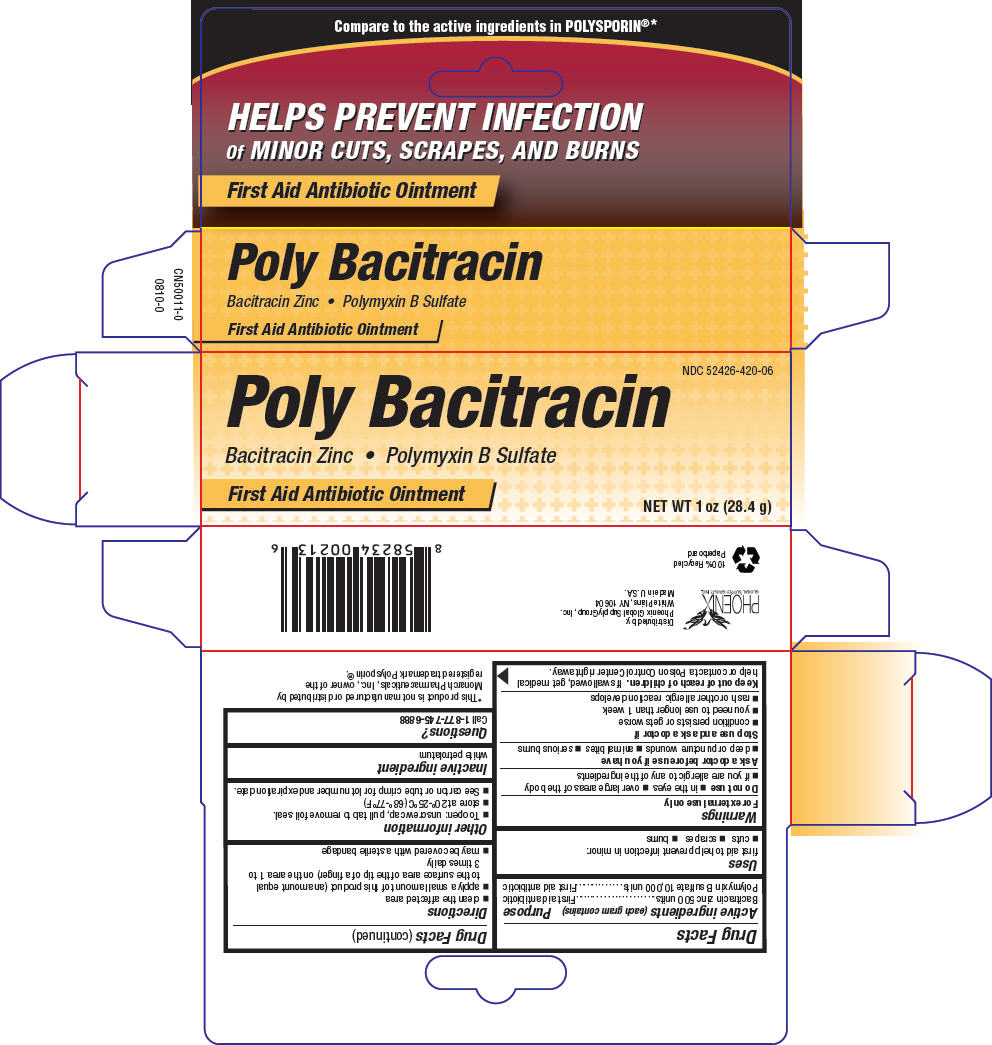Poly Bacitracin | Bacitracin Zinc And Polymyxin B Sulfate Ointment while Breastfeeding

What is Poly Bacitracin | Bacitracin Zinc And Polymyxin B Sulfate Ointment used for?
Purpose: Active ingredients (each gram contains) Purpose Bacitracin zinc 500 units First aid antibiotic Polymyxin B sulfate 10,000 units First aid antibiotic
Can I continue breastfeeding if I am using Poly Bacitracin | Bacitracin Zinc And Polymyxin B Sulfate Ointment? How long does it stays in breast milk?
Poly Bacitracin | Bacitracin Zinc And Polymyxin B Sulfate Ointment Breastfeeding Analsys
Polymyxin b sulfate while Breastfeeding
SafeCAS Number: 1405-20-5
Antibiotic drug that is usual topically used (Dermatology, ENT and Ophthalmology) At latest update no published data on excretion into breast milk were found. The small dose and low absorption to the plasma in a majority of preparations that are topically used on the eye, ear or skin make a significant excretion into the milk unlikely. Its high molecular weight makes less probable an excretion into breast milk in significant amount. Due to a poor oral bioavailability, appearance in the infant's plasma from ingested milk is regarded as nil or scanty, except in premature infants or during the immediate neonatal period who may show an increased intestinal absorption. Polymyxin E or Colistin with a very similar molecular structure is excreted into breast milk in non-significant amount. It is advisable to avoid the application of creams, gels and other products for local use that would contain paraffin (mineral oil) to prevent absorption by the infant.
Poly Bacitracin | Bacitracin Zinc And Polymyxin B Sulfate Ointment Breastfeeding Analsys - 2
Bacitracin zinc while Breastfeeding
CAS Number: 1405-87-4
Because it is poorly absorbed after topical application and oral ingestion, bacitracin is considered a low risk to the nursing infant.[1] Only water-miscible cream or gel products should be applied to the breast because ointments may expose the infant to high levels of mineral paraffins via licking.[2]
Polymyxin b sulfate while Breastfeeding
CAS Number: 1404-26-8
Because it is poorly absorbed after topical application, polymyxin B is considered a low risk to the nursing infant.[1] Only water-miscible cream or gel products should be applied to the breast because ointments may expose the infant to high levels of mineral paraffins via licking.[2]
What should I do if already breastfed my kid after using Poly Bacitracin | Bacitracin Zinc And Polymyxin B Sulfate Ointment?
We are not completely sure about safety of Poly Bacitracin | Bacitracin Zinc And Polymyxin B Sulfate Ointment in breastfeeding. We would suggest you to contact your doctor or health care provider and explain your situation with Poly Bacitracin | Bacitracin Zinc And Polymyxin B Sulfate Ointment. If you observe anything abnormal with your baby please call 911 or contact emergency services in your area.
My doctor has prescribed me Poly Bacitracin | Bacitracin Zinc And Polymyxin B Sulfate Ointment, what should I do?
If your doctor considers Poly Bacitracin | Bacitracin Zinc And Polymyxin B Sulfate Ointment safe enough to prescribe for you that means its benefits outweigh its known risks.
If I am using Poly Bacitracin | Bacitracin Zinc And Polymyxin B Sulfate Ointment, will my baby need extra monitoring?
Not Sure, Please check with your doctor or lactation consultant.
Who can I talk to if I have questions about usage of Poly Bacitracin | Bacitracin Zinc And Polymyxin B Sulfate Ointment in breastfeeding?
US
National Womens Health and Breastfeeding Helpline: 800-994-9662 (TDD 888-220-5446) 9 a.m. and 6 p.m. ET, Monday through Friday
UK
National Breastfeeding Helpline: 0300-100-0212 9.30am to 9.30pm, daily
Association of Breastfeeding Mothers: 0300-330-5453
La Leche League: 0345-120-2918
The Breastfeeding Network supporter line in Bengali and Sylheti: 0300-456-2421
National Childbirth Trust (NCT): 0300-330-0700
Australia
National Breastfeeding Helpline: 1800-686-268 24 hours a day, 7 days a week
Canada
Telehealth Ontario for breastfeeding: 1-866-797-0000 24 hours a day, 7 days a week
